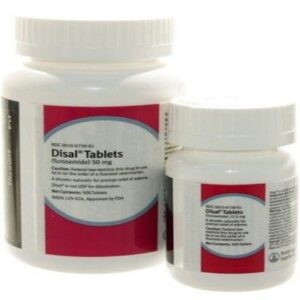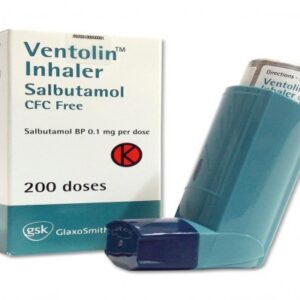Description
Hydrochloorthiazide 25/50mg
Hydrochlorothiazide 25/50mg (HCTZ) is a thiazide diuretic (“water pill”) that is used to treat hypertension and edema. The 25mg and 50mg doses are commonly used, with 25mg being suitable for hypertension and 50mg reserved for severe edema.
How It Works:
HCTZ aids the kidneys in eliminating extra salt (sodium) and water, which:
Reduces blood pressure (decreases blood volume).
Reduces edema (due to heart failure, liver, or kidney illness).
HCTZ is milder than loop diuretics (such as furosemide) and acts on a different portion of the kidney.
Medical applications include treating hypertension as the first line of treatment.
Frequently taken with other blood pressure medications (e.g., ACE inhibitors).
Edema
Due to heart failure, liver cirrhosis, or kidney disease.
Prevention of kidney stones
Reduces calcium excretion in the urine.
Dosage and Administration:
Hypertension: 12.5-25mg once daily (may be increased to 50mg as needed).
Edema: 25-50 mg daily (greater doses are rarely required).
Take in the morning to prevent midnight urination.
Key Notes:
Avoid foods heavy in salt (they neutralize the drug’s effects).
Regular blood tests (to monitor electrolytes, particularly potassium).
Side effects of Hydrochloorthiazide 25/50mg.
Urination has increased (peaks in 3-6 hours).
Mild dizziness (particularly when standing).
Low potassium (hypokalemia) can cause muscle cramps and weakness.
Sun sensitivity (increased likelihood of sunburn).
Serious (Rare but Requires Medical Help):
Serious electrolyte abnormalities (low sodium, potassium, or magnesium).
Gout attacks (increases uric acid).
Pancreatitis causes significant stomach pain.
Allergic reactions (rash, swelling—particularly in sulfa-allergic people).
Drug Interactions:
Digoxin (low potassium increases toxicity risk).
Lithium .
NSAIDs impair the efficiency of HCTZ.
Diabetes medicines (may raise blood sugar).
Contraindications:
Severe renal disease.
Sulfa allergies .
Monitoring and Lifestyle Tips:
Check your blood pressure on a regular basis.
If prescribed, eat potassium-rich foods such as bananas and spinach.






Reviews
There are no reviews yet.